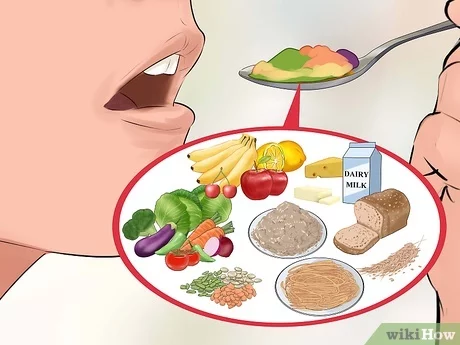
Gaining weight with diabetes can be challenging, as it requires a delicate balance of increasing calorie intake while maintaining stable blood sugar levels. Whether you have type 1 or type 2 diabetes, this guide offers practical strategies to help you achieve healthy weight gain safely and effectively.
Focus on Nutrient-Dense Foods
When trying to gain weight, it’s essential to choose foods that are not only calorie-rich but also packed with nutrients. Nutrient-dense options help you add weight healthily while managing blood sugar levels.
- Healthy fats: Incorporate foods like avocados, nuts, seeds, olive oil, and fatty fish such as salmon. These are calorie-dense and have minimal impact on blood sugar.
- Protein-rich foods: Lean meats, eggs, tofu, beans, lentils, and low-fat dairy products provide essential amino acids to support muscle growth and repair.
- Complex carbohydrates: Opt for whole grains (like quinoa, oats, and brown rice), legumes, and starchy vegetables (like sweet potatoes and squash) to provide sustained energy.
Eat Smaller, Frequent Meals
Instead of three large meals, aim for 5–6 smaller meals or snacks throughout the day. This approach prevents overloading your body with carbohydrates and helps maintain stable blood sugar levels.
Each meal should include a balance of protein, healthy fats, and carbohydrates to provide steady energy and promote weight gain.
Monitor Carbohydrate Intake
Carbohydrate management is crucial for diabetes. To avoid blood sugar spikes:
- Choose low glycemic index (GI) carbs, such as whole grains, legumes, and non-starchy vegetables.
- Pair carbohydrates with protein and healthy fats to slow digestion and prevent blood sugar spikes.
- Monitor your portions and adjust insulin or medication accordingly, under the guidance of your healthcare provider.
Use Calorie Boosters
Adding healthy, calorie-dense toppings or ingredients to your meals can increase your calorie intake without requiring you to eat large portions.
- Sprinkle nuts or seeds on yogurt, salads, or oatmeal.
- Add nut butter to smoothies or whole-grain toast.
- Drizzle olive oil or add avocado to cooked vegetables and grains.
- Use cheese as a topping for soups, stews, or casseroles.
Stay Hydrated Wisely
Proper hydration is essential, but sugary drinks can cause blood sugar spikes. Instead, choose beverages like:
- Water
- Unsweetened herbal teas
- Milk alternatives fortified with vitamins and minerals
Diabetic-friendly meal replacement shakes or smoothies can also serve as a high-calorie, nutrient-rich drink option.
Consider Liquid Nutrition
If eating larger meals is difficult, diabetic-friendly meal replacement shakes or homemade smoothies can be a great alternative. Include ingredients like:
- Protein powder or Greek yogurt
- Unsweetened almond milk or other low-sugar liquids
- Low-GI fruits like berries or a small portion of bananas
- Nut butters or avocado for added calories
Exercise to Build Muscle
Strength training is an effective way to gain weight healthily. Building muscle mass not only increases your weight but also improves insulin sensitivity, making it beneficial for diabetes management. Incorporate exercises like:
- Weight lifting
- Resistance band workouts
- Bodyweight exercises (e.g., push-ups, squats)
Always consult your healthcare provider before starting a new exercise routine.
Work with a Dietitian
A registered dietitian with expertise in diabetes management can help you create a personalized meal plan that balances your weight gain goals with blood sugar control. They can also help you identify any specific nutritional deficiencies or imbalances.
Monitor Blood Sugar Closely
Frequent blood sugar monitoring is essential when making dietary or lifestyle changes. This ensures your blood glucose levels remain stable and helps you adjust your meal plan or medication as needed.
Consider Medical Support
If you’re struggling to gain weight despite dietary adjustments, consult your healthcare provider. They can check for underlying issues, such as thyroid disorders or malabsorption problems, and make necessary adjustments to your diabetes treatment plan.
Sample Meal Plan for Weight Gain with Diabetes
Here’s a sample day of meals to inspire your weight gain journey:
Breakfast
- Scrambled eggs with avocado and whole-grain toast
- A small bowl of berries
- Black coffee or unsweetened herbal tea
Snack
- Greek yogurt with a handful of nuts and a drizzle of honey (if approved by your doctor)
Lunch
- Grilled chicken salad with olive oil and quinoa
- Steamed vegetables
Snack
- A smoothie with unsweetened almond milk, protein powder, a tablespoon of peanut butter, and a small banana
Dinner
- Baked salmon with roasted sweet potatoes and steamed broccoli
- A small side of whole-grain pasta
Snack
- Cottage cheese with a sprinkle of flaxseeds
Final Thoughts
Gaining weight with diabetes requires a thoughtful approach that prioritizes nutrient-dense foods, stable blood sugar levels, and consistent monitoring. By following these strategies and working closely with healthcare professionals, you can achieve your weight gain goals while maintaining optimal diabetes management.
